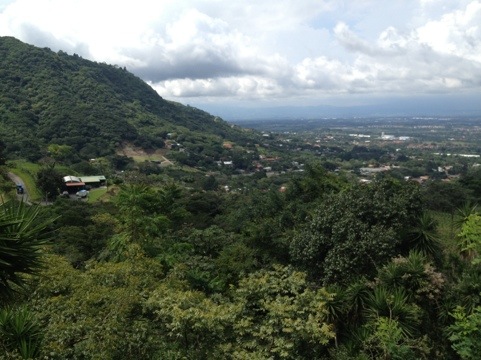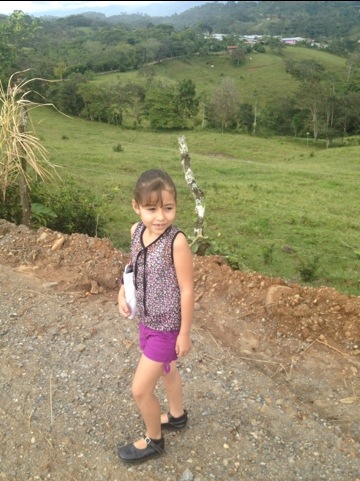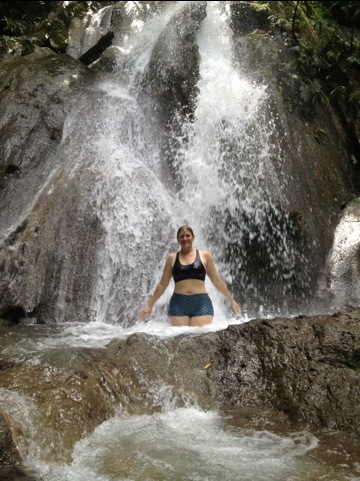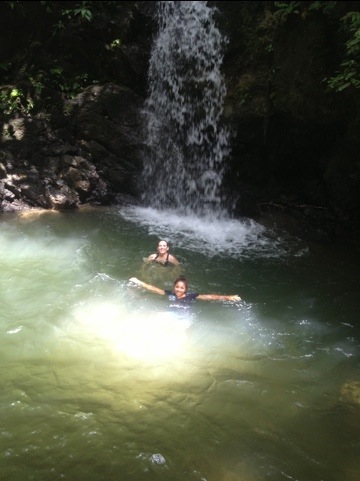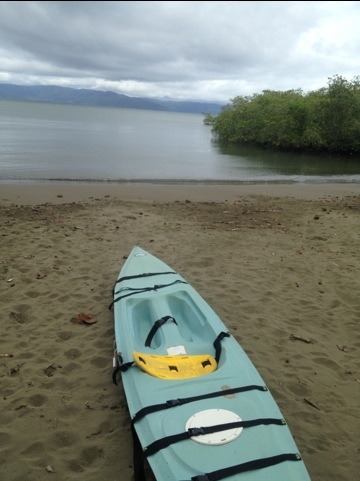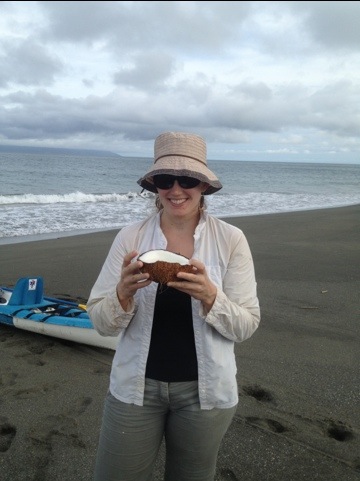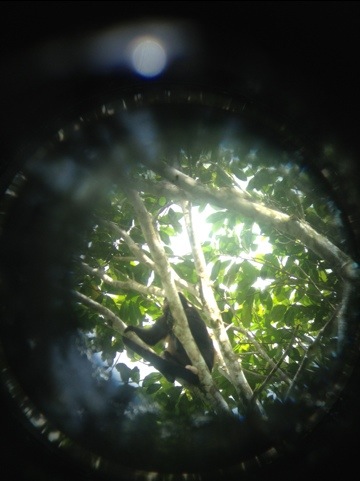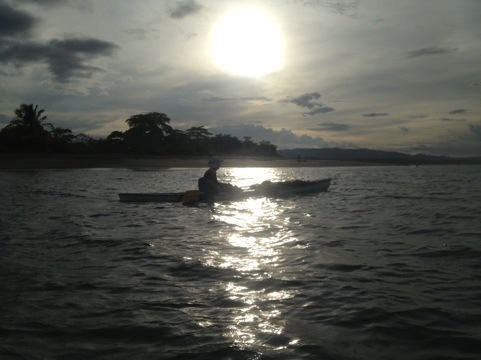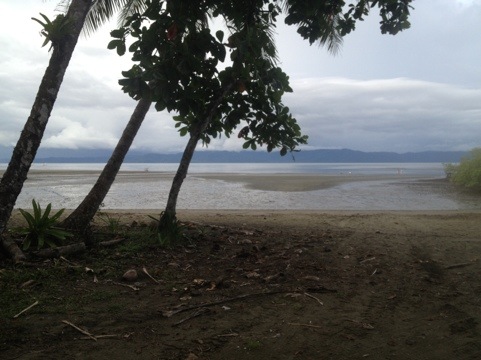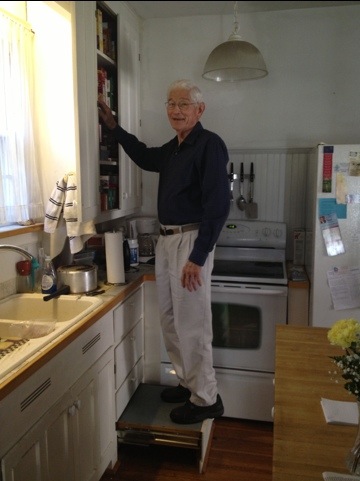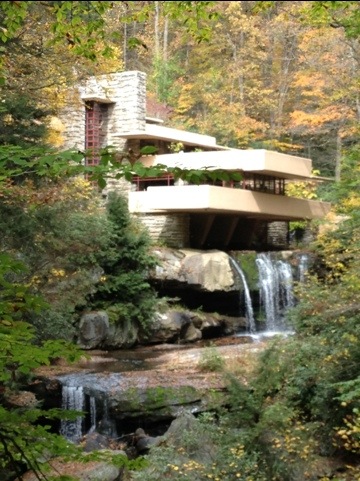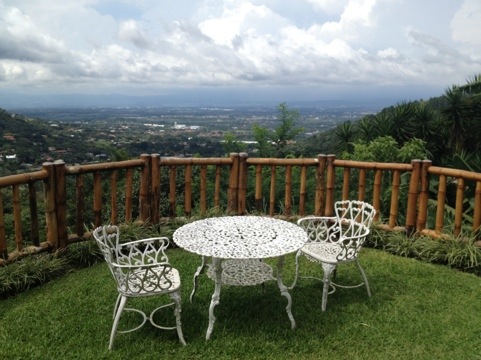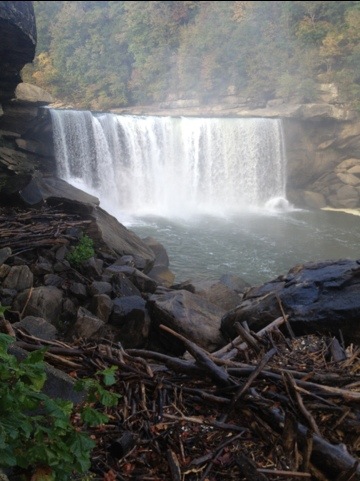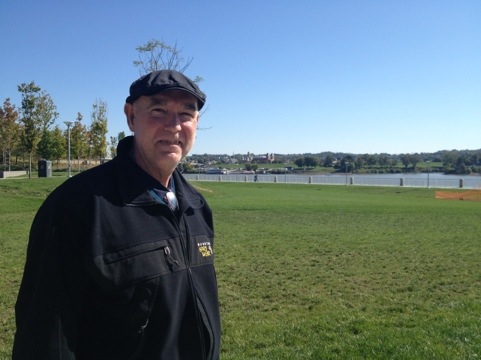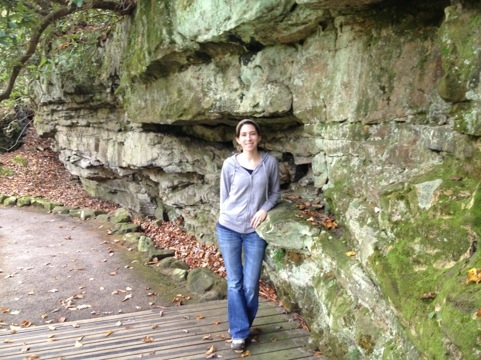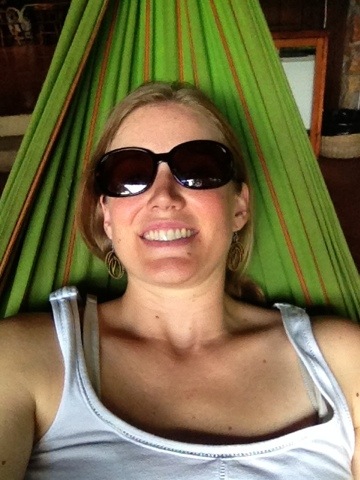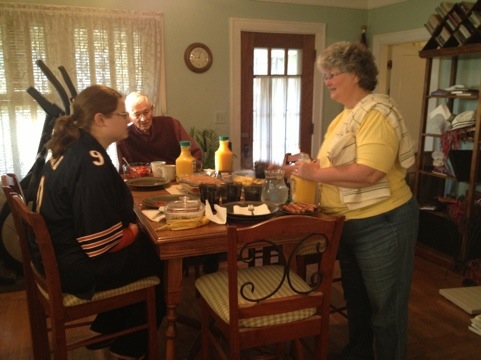I’m in a little corner of paradise in the wildest part of Costa Rica, and I just keep having to pinch myself to believe that I am where I am. I just got here, and I’m already sad because I don’t know when I’ll get to come back. I’m on the Osa Peninsula on the South Pacific coast of Costa Rica at a little ecolodge called Iguana Lodge. October is the rainiest month in Costa Rica, so most places have ridiculously low prices this time of year. I think it might be my favorite time of year here because things are much quieter, and it only rains a few hours each day in the afternoons, which can make for a really peaceful afternoon! Another lady from Colorado and I are the only two guests at the moment, so we kind of have the place to ourselves! I’m torn between just wanting to play on the beach all day and wanting to see all that this beautiful place has to offer. It’s whale season here, so there are plenty of tours you can take to go whale watching or kayaking or waterfall rappelling or ziplining or surfing!
So far the whole trip to Costa Rica has been so lovely and peaceful. I wasn’t sure what to expect because it’s been nearly four years since I was here last and this country and I have so much history!
I first came here when I was 19 to study Spanish. I studied at an institute in the mountains of Santa Ana called Conversa and lived with a host family in the town of Santa Ana. I was only here for three weeks but fell so much in love with the country. I hadn’t been back in the states for a day when I called my host mom crying because I missed everything so much. I love the outdoors and outdoor adventures so incredibly much that it really was the perfect place for me to keep working on my Spanish. I’ve always struggled when I have to sit still or be indoors for long periods of time, so to be in outdoor classes that consisted of hiking or ping pong or swimming was my perfect learning environment. After returning to the states, I talked with my advisor in college and worked it out so I could come back to spend the summer here that same year and get school credit for it. That summer I started dating a “tico” that I had stayed in touch with from my first trip to Costa Rica. Between my love for him and the beaches and mountains and waterfalls, I never wanted to leave. I tried unsuccessfully to find a job down here and return the next semester, but when that didn’t work out, our relationship fizzled.
In the meantime, I had found a small community of ticos in Birmingham that could ease the pain of being so far away from my little paradise. I still came back whenever I could to visit and explore new parts of the country. Then a couple of years and a few Costa Rican boyfriends later, after I returned from a five month trek around Europe, I started dating my future husband. We met at a party that my Costa Rican friends hosted and would then see each other and dance together every Friday night at Assagio for Latin dancing. I tried my best not to date him, having sworn off all latin men, but after about six months of him insisting, I gave in!
We came to Costa Rica a few times while we were dating, and I had so much fun with his gigantic family of 11 brothers and sisters and countless cousins and nieces and nephews.
It was such a welcome contrast to my white middle class America that seemed to want to lead me down such a conventional path.
After about two years of a tumultuous courtship, partly because we thought we could love each other forever and partly because of logistical reasons such as immigration, etc, we decided to get married. Our marriage was one of extremes, things seemed to swing back and forth from extremely happy and good to horrific and unbearable. One month he would seem to love me more than he’d ever loved anyone and the next month he’d seem extremely distant, ready to pack his bags and leave. We both struggled to adapt to each others’ expectations and cultures, and after 4 years of marriage, because of so many different reasons, we separated. It was extremely difficult, but after crying nearly everyday for several months, I was able to see things with more clarity and trust that it was the best thing for both of us.
After we split up, I wasn’t sure if I would ever come back to Costa Rica, but I’ve discovered since then that my love for this country was not at all dependent on my ex-husband. He now lives part of the year next door to my goddaughter with his wife and 5 month old baby. He let me borrow his car and his cell phone for the time that I’m here, and something about being here and holding his baby and laughing with his new wife has brought me a strange sort of peace and happiness. Even though I’ve felt peaceful about our divorce for a long time, it’a strange thing to feel so happy and sad at the same time. I’m still sad for all that was lost, but I know that it’s better now that we aren’t together. And I’m so incredibly grateful that we can all spend time together without feeling any anger or resentment towards each other. It means the world to me to be able to stay next door to each other and have that be ok.
It’s also strange because in some ways it feels like the country hasn’t changed at all and in other ways things are different. The machismo is still very present here. Women are expected to stay home, clean, take care of the kids and cook three meals a day- and to ask the man in their lives permission for everything. I’ve been asked repeatedly, “your boyfriend let you come here alone?!” I still haven’t found a very good answer to that question, and every time I’m asked that, I feel so grateful to come from a place where I have the freedom to carve out my own path. But at the same time, at least in the rural areas, there is still so much poverty here that the machismo almost makes sense. There’s not enough demand for both spouses to work so the only way they can afford to get by is if the wife stays home, raising the children, cleaning and cooking rice and beans over and over again. Most people seem to have enough money to buy food and to pay their monthly water and electric bill, but not much else. Marita, my goddaughter’s mom, is an awesome seamstress who makes most of their clothes because she can’t afford to buy any. All the toys the kids have are decades old and look like antiques- in many ways it’s kind of refreshing. And it’s definitely been a good reminder of how little we actually need. Most of the trash at their house is compost so they just throw food scraps into the jungle behind their house. Of actual trash, they may have a small plastic Wal-Mart bag full each month. For many years they had a big hole that they had dug themselves to bury the trash. Marita was excited because I made some cookies and brought them in a tupperware container- she was thrilled to have a container to put her husband’s lunch in everyday! Many people here still use banana leaves to wrap their lunches in!
Marita’s family used to raise pigs, and they would use the methane from the pigs’ waste to cook and heat their water. But Marita says that since the free trade agreement with the US was passed, the meat from the factory farms in the US can be imported so cheaply, that it no longer makes economic sense for them to raise their own pigs. A similar thing seems to be happening with coffee. My ex’s brother has a coffee plantation, and he says that the price off coffee dropped over 60% this year because it can be imported so cheaply from other places. With the current price of coffee, they can barely afford to pay the workers to harvest it and then have it transported to the co-op.
I don’t know if the free trade agreement has benefited the country in some ways or not. Marita says that people have more access to technology than ever before, which could be a good and bad thing! Nearly everyone has a cell phone with prepaid plans- most people text here because it costs less than a penny to send a text message.
I’ve also noticed a shift in the mentality of Costa Ricans with regard to conservation efforts in this beautiful country. When I first came to Costa Rica, I was struck with how reckless people could be with such a gorgeous place. Piles of trash would line the streets and river banks. People didn’t think twice about leveling primary rainforests to create pasture land. Then they would douse the land with chemicals that went straight to the rivers to keep weeds from growing. But those practices seem to be changing, due largely to the influence of foreigners.
In some ways, all the foreign influence and immigration from the US and Europe has made the country a lot more expensive for the locals. But at the same time, the tourism industry has created so many jobs and has helped people understand that they need to protect their country if they want it to continue being a prime eco-tourism destination. I think when people come from such poverty, it’s easy for them to only focus on what money can buy. They take this beautiful paradise for granted because it’s all they’ve ever known. So it’s really nice to see that now many schools are teaching kids about recycling and conservation.
As I navigated around potholes on the five hour trek to reach this lodge, I was struck by how alive I felt. And after I reached the lodge, I sat down to listen to the crashing of the ocean waves and three macaws flew over my head. I felt a familiar pit in my stomach that usually happens when I’m afraid. And I thought to myself that maybe I was afraid of being in a place so unfamiliar and so wild, but then I realized that I was afraid of just the opposite. I’m afraid of leaving. This is the place where my soul can rest, and I can feel alive at the same time. And I’m scared of going back to a routine and a life that flattens me, that I’ve tried so hard to mold into a life that I love but that still doesn’t let me feel totally alive. And I feel so sad and trapped when I think about leaving this little paradise. At home I get consumed by responsibilities, to-do lists and trying to “be somebody” or achieve something.
But for now, I’m going to try and be here while I’m here, knowing that I’ll leave here a slightly different person than when I came. And trusting in the fact that life unfolds at its own pace and that the answers will come to me as I’m ready for them.
Here are a few photos from this lovely place, the school where I studied, my goddaughter and the peninsula (I haven’t figured out how to caption photos from my phone yet!)

